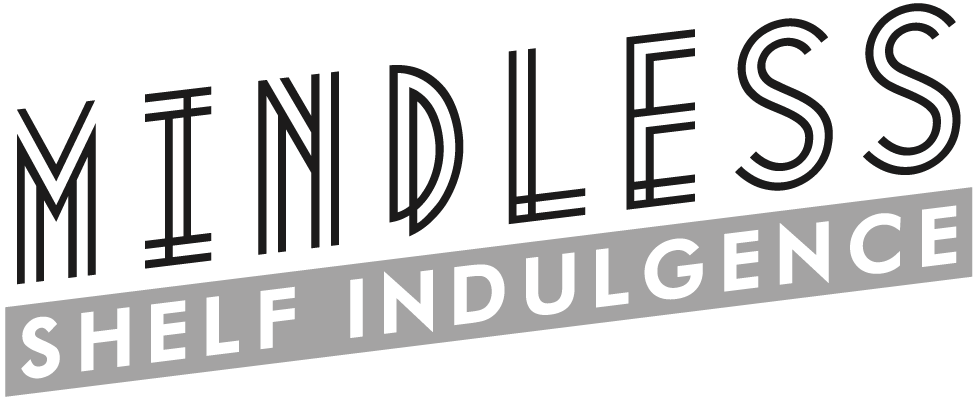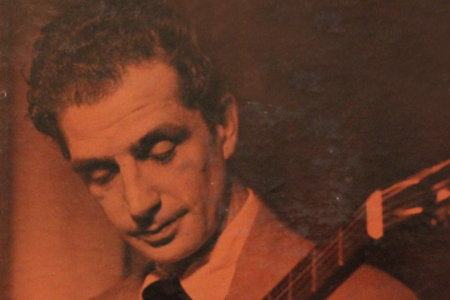There had to be a rough patch in here eventually. A majority of the next ten records were a disappointment, having made the terrible mistake of picking up a patch of “exotic” records from some free pile somewhere, hoping for gold.
But in disappointment, there’s some success. As we start to tentatively plan for a move, the fewer records that have their hooks in me, the better. A single record weighs about 9 ounces. Ten records is about 5.5 pounds, and 100 records is 55 pounds. When you start measuring your collection by weight, you’re on a whole other plane, and cuts must be made. So if you have records that suck, it’s just 9 fewer ounces to carry around.
Omitted from this handful is Mingus Ah Um, which has always been one of my favorites, and Special Beat Service by The English Beat, which is another excellent album I’m already familiar with.
Quarantainment I
Quarantainment II
Quarantainment III
Quarantainment IV
Quarantainment V
Quarantainment VI
Quarantainment VII
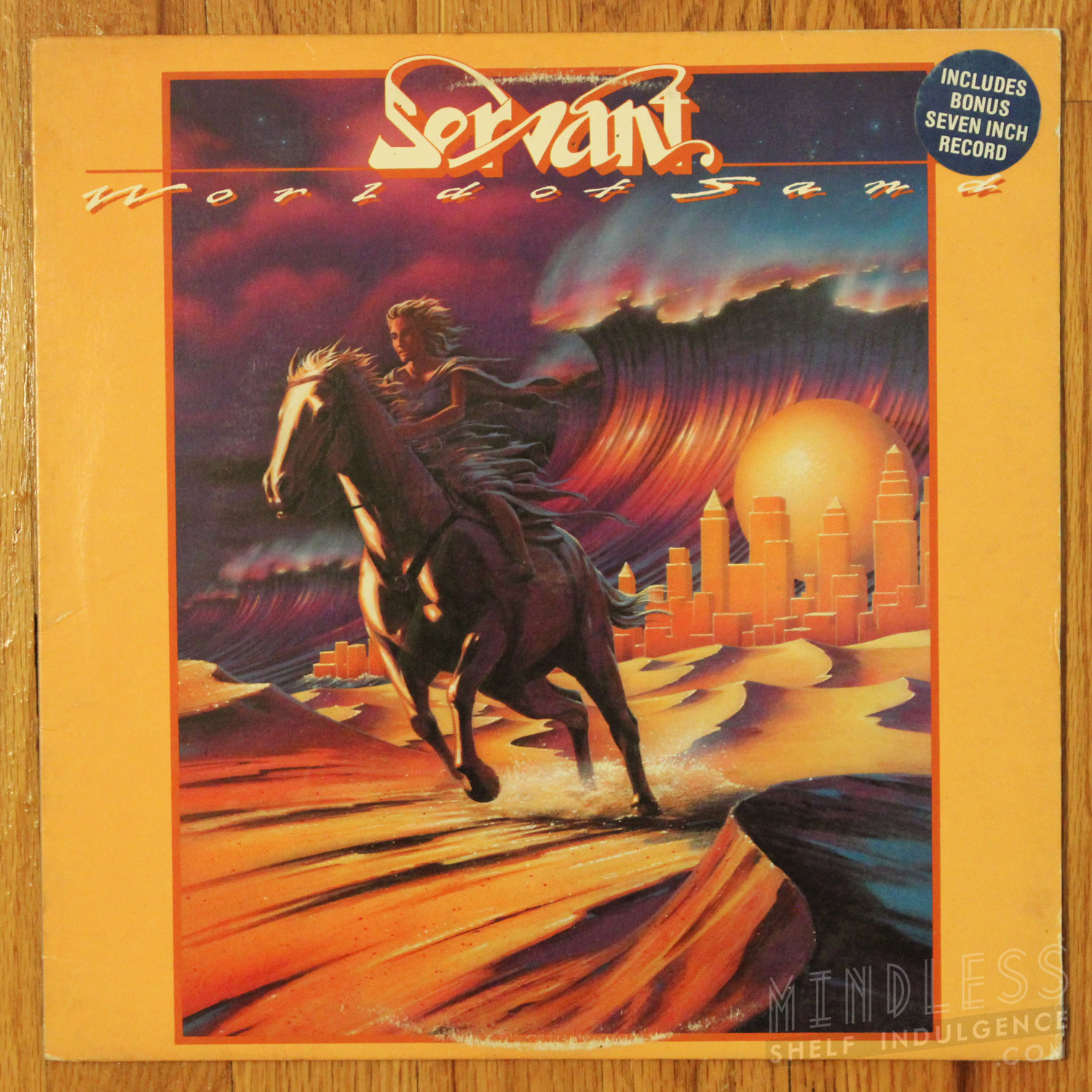
Servant
World of Sand
[1982]
Let me just get this out of the way : this is possibly the most embarrassing album I’ve ever heard.
There are Christian bands whose music transcends the fact that their music is subtly about God stuff, like Sixpence None the Richer, and some of Daniel Amos (when they’re not weirdly preachy about how women shouldn’t have freedom). Servant leans extremely hard into really obvious messages about religion, with child-like lyrics that sometimes feel like they’re trying to rhyme more than use proper word meanings, and simplistic music that’s somewhere between classic rock and New Wave. I thought there was no such thing as bad New Wave, but Servant changed my mind.
I’m not anti-religion by any means, but I am pro-music. This feels more like a community theater rock opera about Jesus, complete with bizarre, overly-long skits in funny accents, a guy trying really hard to sing a rock-n-roll falsetto but not quite hitting it, and songs that are more talky than any song needs to be. It’s not music specifically written for children, but I have a hard time imagining anyone but the most sheltered adult really getting into this pseudo-music at face value. It’s like someone listened to a good song on the radio and tried to reproduce it with more Jesus-y lyrics. It’s shockingly oblivious, lapsing into vaguely racist “oogah oogah” chanting territory during “Jungle Music”, and otherwise just attempting humor and failing miserably. Of course it’s unaware; it doesn’t have to be aware of what makes a good album. As the product of a well-funded religious group, it’s basically self-published, and everyone knows that self publishing is where the darkest things live.
Keep or toss? It has a pretty great cover, at least. This may be so bad it’s good.
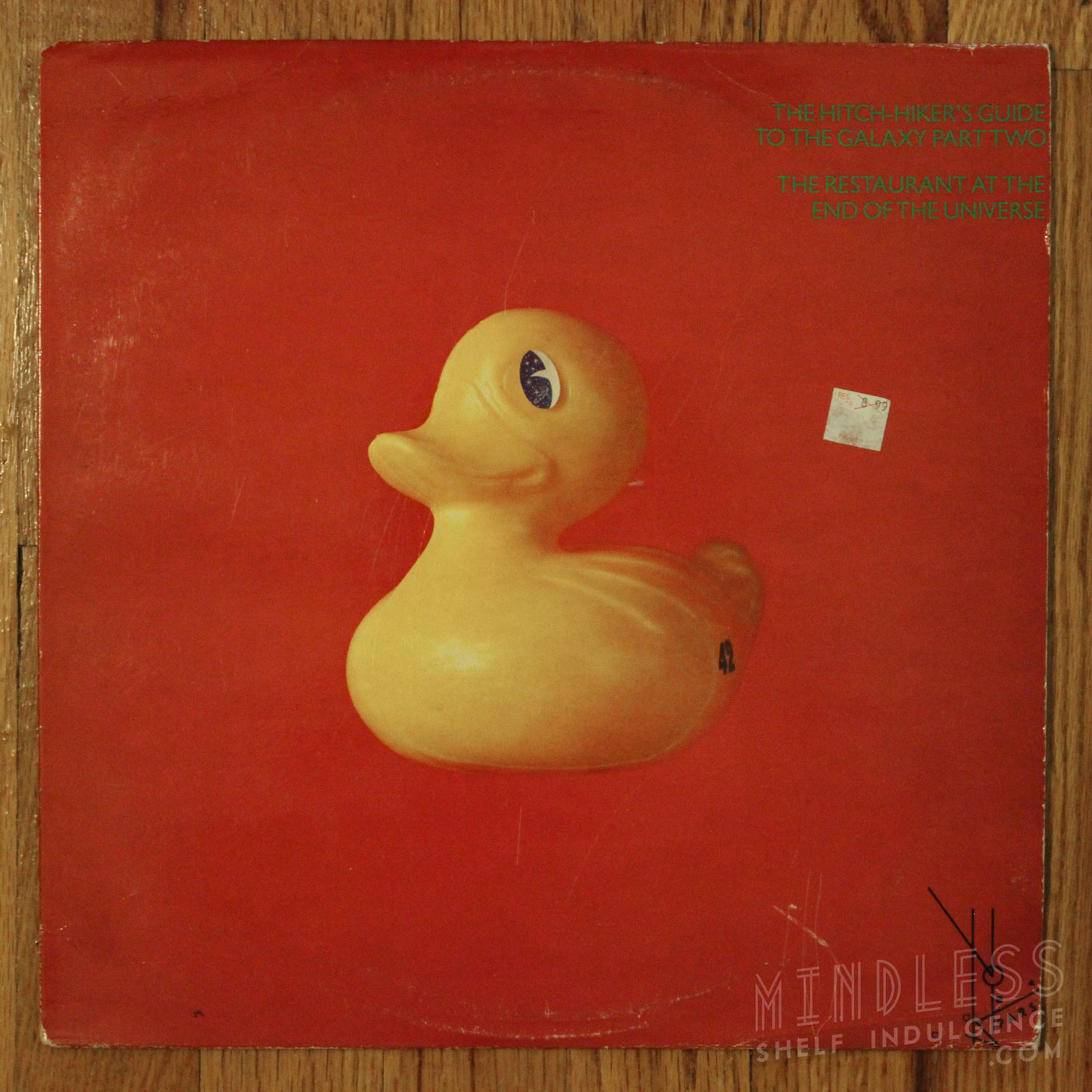
The Hitchhiker’s Guide to the Galaxy Part Two:
The Restaurant at the End of the Universe
[1982]
It’s kind of a rite of passage to read the whole H2G2 5-book trilogy as a young, nerdy kid, and I think I’m lucky enough to have grown up steeped in both Douglas Adams and Dungeons and Dragons. These things are nothing but warmth. But trying to understand the order of the countless spin-offs, sequels, and adaptations of H2G2 is chaos. Even the commonly-accepted abbreviation of “H2G2” is nearly meaningless. It all works well with the the overarching theme of the story : everything is uncontrollable chaos and all you can really do is embrace its meaninglessness.
This is the second volume in a trilogy of records adapted from a radio show which was adapted from the novels. They’re edited down from the radio adaptations, and presumably published before the author had a say in the final cut… so it was re-released later as a kind of director’s cut. Some credits on the reverse of the LP cite people who don’t even exist. It’s all a unique miasma of chaos.
You can’t listen to this audio play without knowing the story; it’s a little nonsensical to begin with, so the anchor of part one is needed. But other than that, it’s as good as any audio drama can be, with original music, great acting, and plenty of atmosphere.
Keep or toss? It’s a great little curiosity, but does it really have a place without the records that come before and after it?
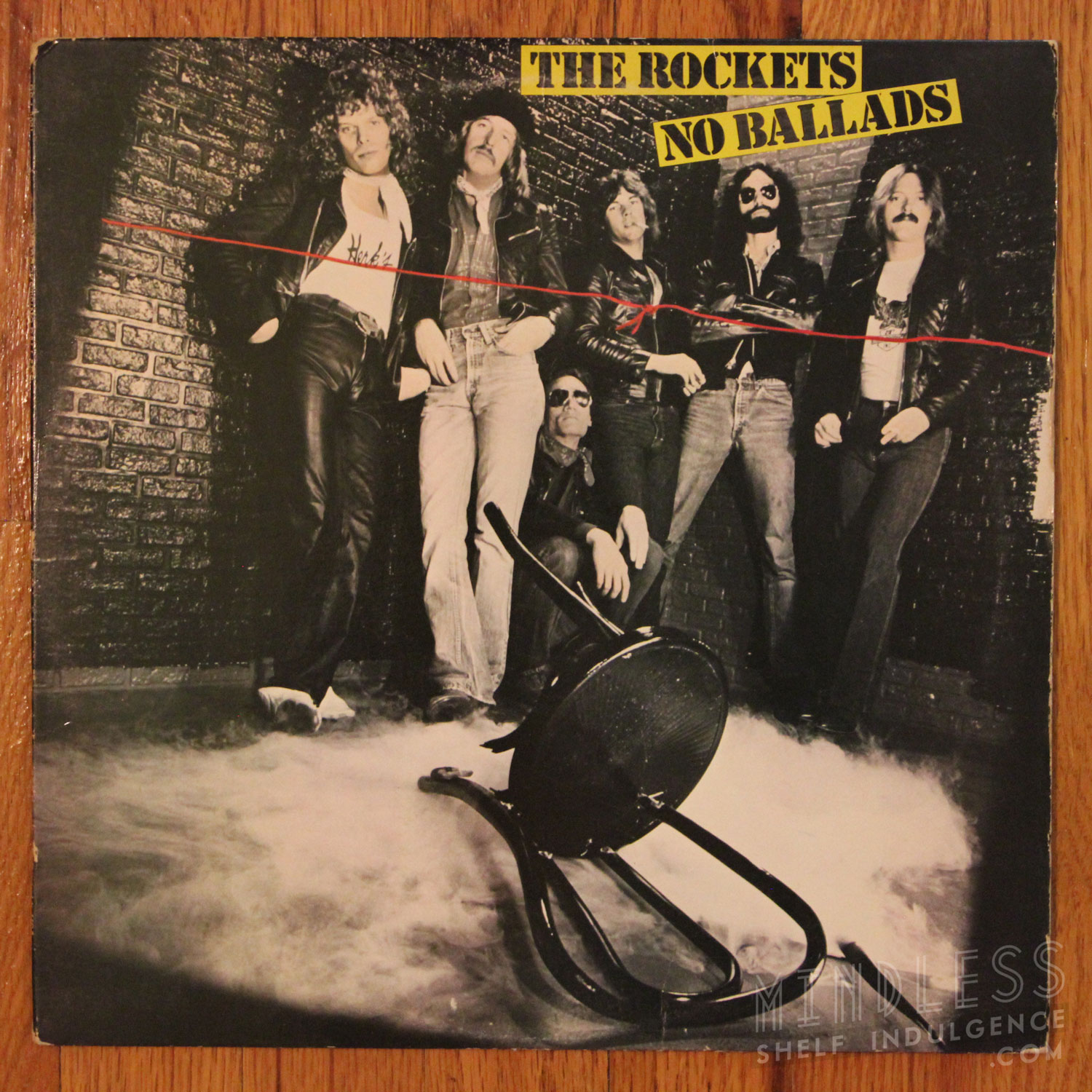
The Rockets
No Ballads
[1980]
Super standard radio hard rock. If you want to simulate the unobtrusive background music of a sassy 80s movie about teenagers up to no good, here you go. Maybe I’m just a decade too young to really appreciate this, as I was negative one years old when this came out. I still think I know really interesting music when I hear it, and I’m not hearing it here.
Keep or toss? Not feeling it.
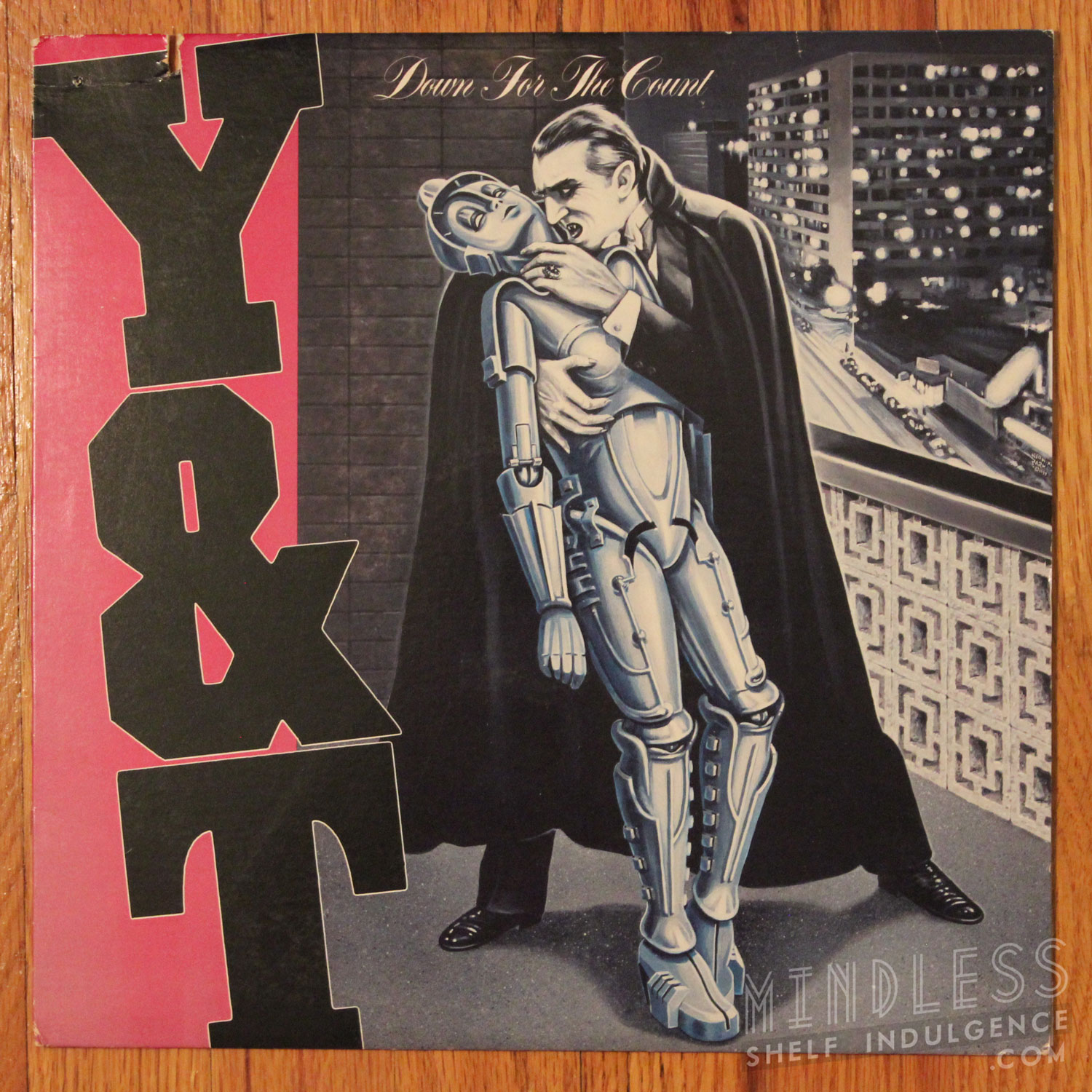
Y&T
Down for the Count
[1985]
Super standard radio hard rock, which is disappointing because they have some pretty badass covers, and a cool name, which is abbreviated to Y&T from ‘Yesterday and Today’. I hope to one day enter a point in my life when generic hard rock really reaches me, but I’m barely 40 and I don’t drink beer and play Halo, so we’re not there yet.
Keep or toss? Not feeling this either, despite the cover.
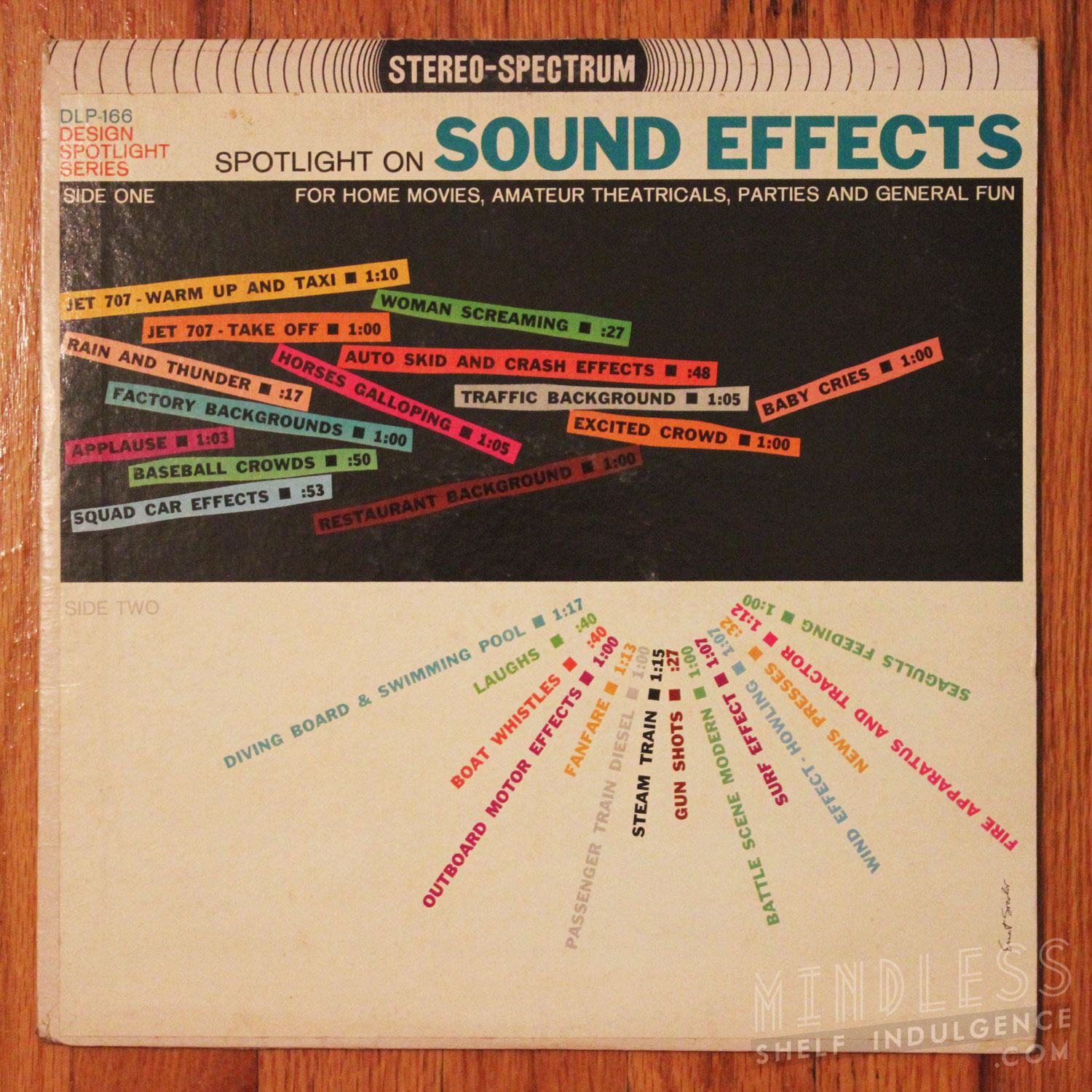
Spotlight on Sound Effects
Design Stereo Spotlight Series DLP-166
[1962]
If someone were to construct a perfect hell for me, crafted exactly to fit the secret shape of my greatest irritations, pains, and fears, this record would be playing nonstop. Just a hissing, popping, never-ending orouboros of the most terrible noises ever recorded, featuring such hits as “Woman Screaming”, “Baby Cries”, Auto Skid and Crash Effects”, “Gun Shots”, and “Seagulls Feeding.” You’d think that the calls of birds on a gentle beach would be a welcome respite from “Burning School” and “Nails in Eyes” (I made those up), but it’s not. Somehow, while listening to the urgent, desperate, and shrill screams of these birds, I could picture nothing but a hot white sun that somehow cast no light, and the shadows on shadows on the twinkling ocean was all that the eye could comprehend in the blinding light, while birds hovered overhead demanding food that I did not have to offer.
I don’t think that’s what this record was going for, but it ruined my night. Sure, this is meant to supplement radio shows and stage plays and whatever other situation you’d need the sound of a fire engine and a crowd, and its “stereo spectrum spectra-sonic sound” was probably pretty okay for its day, but I feel like by listening to this hellscape, the demons now know exactly what to do when I find my way down there. I have released the hidden face of my fear, and there is no escape.
Keep or toss? I think I need to throw this into Mount Doom to break the curse it has unleashed.
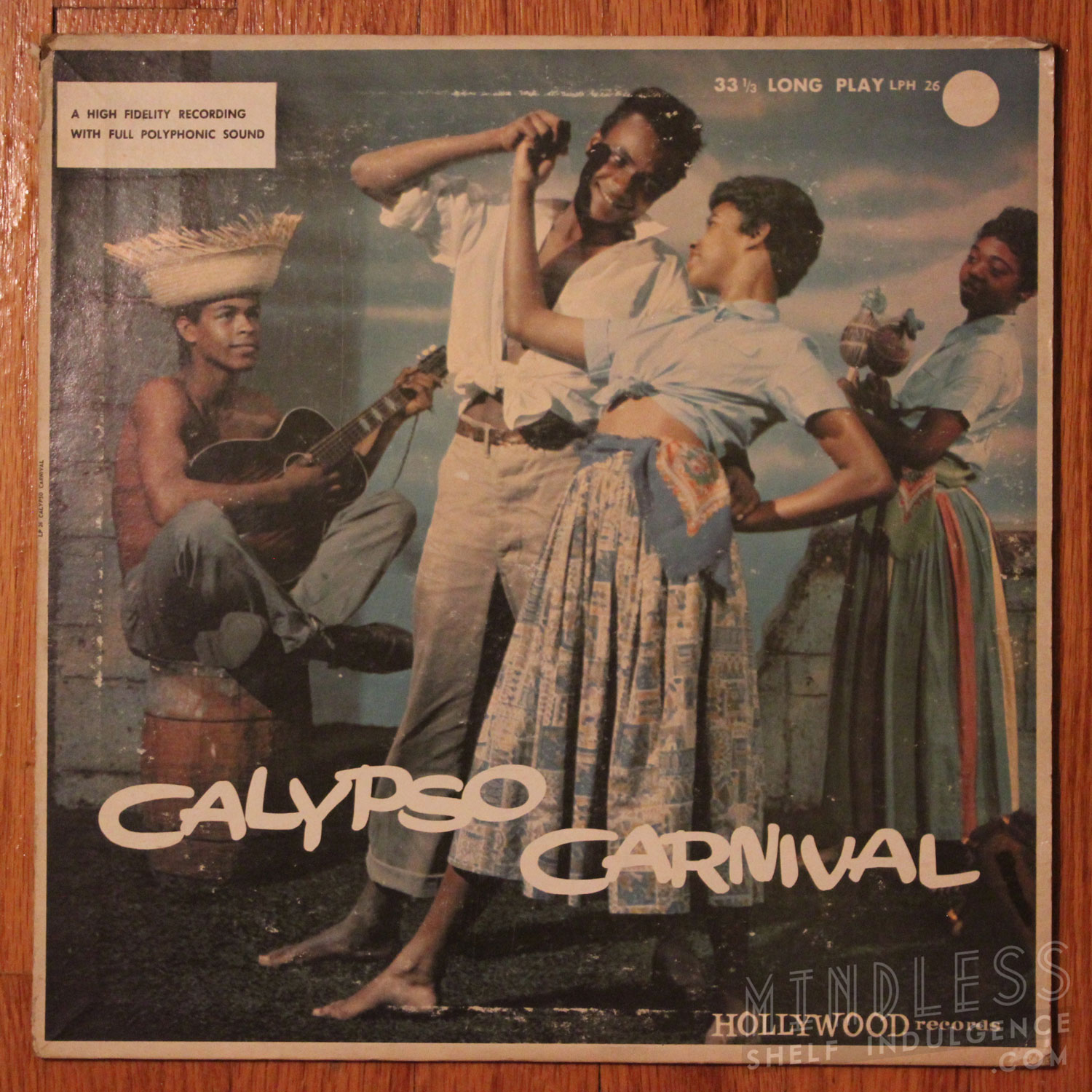
The John Arvin Quartet
Calypso Carnival
[Unknown year]
One of the things that pops up at thrift stores and bargain bins far too often are “exotic” compilations of music without any real presence or purpose. It’s usually not worth giving them much of a chance. They’re not about the art, but the product. This was such a throwaway record that nobody even knows exactly what year it was made.
I expected the worst from Calypso Carnival, not only because of the generic name and the fact that no artist was listed on the cover, but more so when I flipped it over and was greeted by four white guys. I’m not going to get into the debate about cultural appropriation vs. appreciation, but this is clearly four dudes who lack a Caribbean heritage selling music that they don’t seem to have a connection to.
The other problem here is that it’s good. It’s well-performed as music, and the selections are fun, even if it’s completely inauthentic. But the singers also kinda put on vaguely Caribbean accents, which doesn’t really fly. It’s in a weird place. Is it harmful to appreciate this today for the era it came from, acknowledging the problems with it, and using it as a tool to understand how things needed to change? Is this just kitsch, and can kitsch be harmful? It’s a lot of questions I didn’t expect to be asking about something to innocuous on its surface.
It’s upbeat, it has a sense of humor about relationships and obnoxious tourists, and it’s genuinely listenable.
In a bizarre turn, John Arvin’s only credit on Discogs is a field recording of a Carolina wren. He has another credit as Johnnie Arvin, recording one half of a 45 in 1957. There’s not a lot out there about this quartet, but the record’s notes reveal that they were once associated with Ralph Flanagan and his orchestra, but have gone largely uncredited.
The unfortunately-named Jack Daniels is virtually impossible to search today, with at least 35 people going under that name on Discogs. He’s probably Jack Daniels #10, who would release his own set of covers of Frank Sinatra songs, and a ton of singles with fellow quartet member Dick Warren. Bill Sontag has a single credit singing on a religious record.
Keep or toss? I was sure this was a toss, but it’s just a little too much fun. This may be the only record of this set of ten that I keep without hesitation.
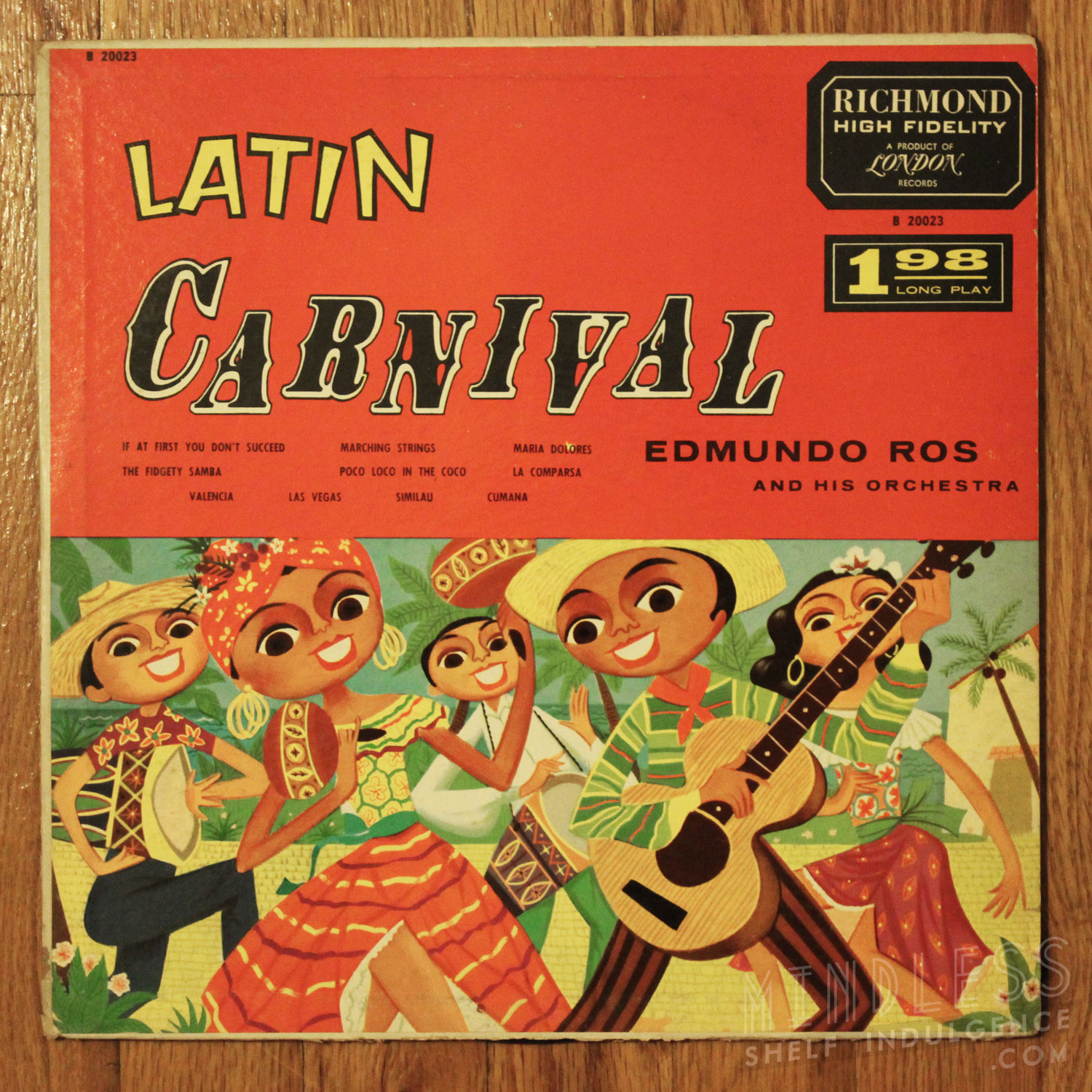
Edmundo Ros and his Orchestra
Latin Carnival
[Unknown year]
It’s a total coincidence that two “exotic carnival” records would pop up at once. And it’s encouraging that this one is actually performed by someone culturally associated with the music, having actually been born in Trinidad.
Edmundo Ros was an important figure in music, and he was recording when 78s were still a thing. Notable fans included the Royal Family, and future queen Elizabeth, who was reportedly seen dancing in public to his music. He was often invited to play at Buckingham Palace, so that may give an impression of the gentle type of music Ros became popular with, like a Latin Lawrence Welk. Which is still a lot better than Lawrence Welk, but maybe even conjuring his name is enough to taint the best albums. I’ll mention him a lot as a yardstick by which albums of this era are measured.
It’s not all like that, though! Somewhere mixed into the smooth sambas are a couple of breakouts. “Poco Loco in the Coco” is probably just a novelty song, but it’s genuinely upbeat and fun, and maybe that makes me simple. And his rendition of the absolutely classic “Similau” is worth keeping.
Keep or toss? Going to trade this in for something that’s a little less soft.
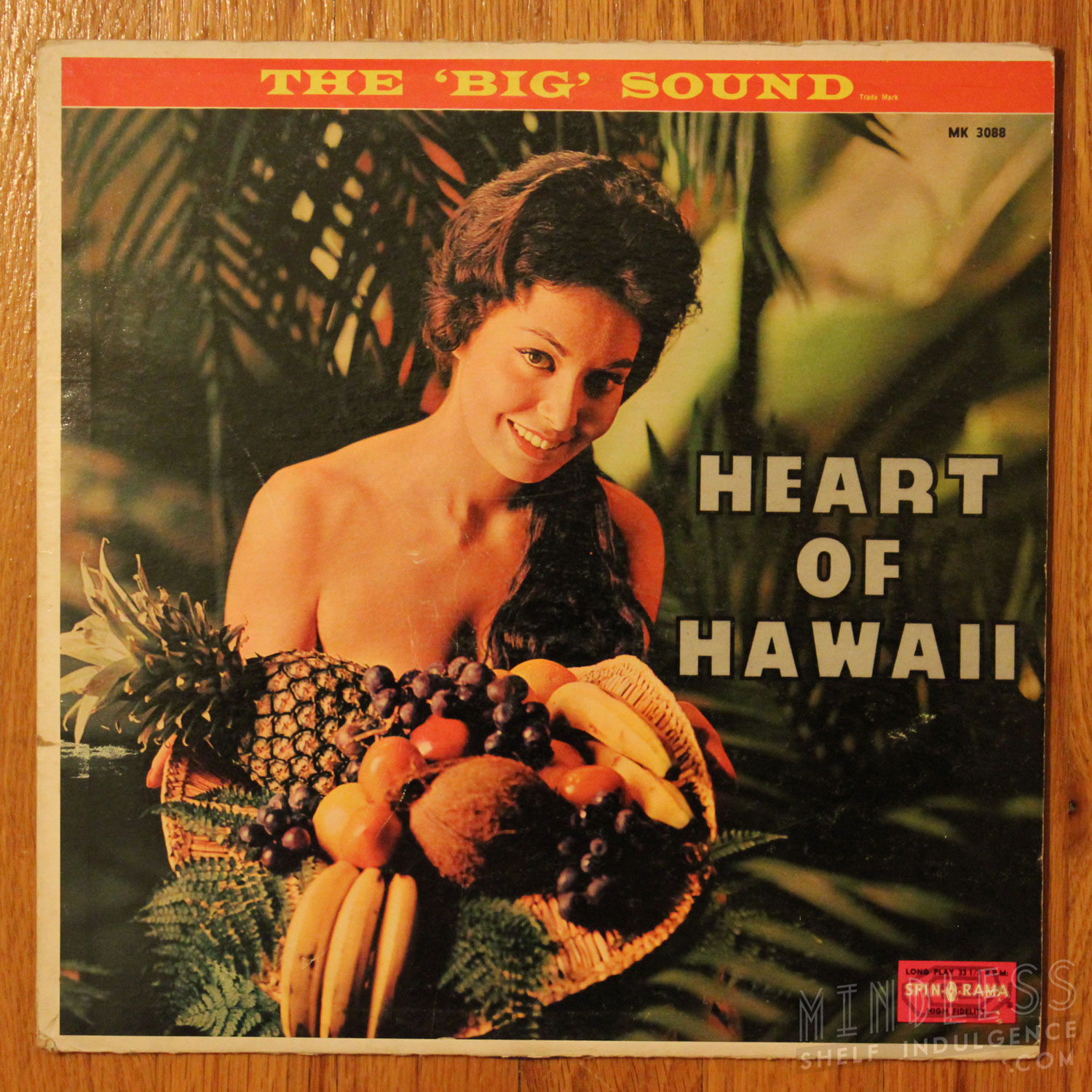
Heart of Hawaii
[Unknown year]
Not only is the year of this exotic compilation unknown, but so are the performers. The album was (allegedly) released under two other names : Moon of Manakoora by Lush Strings, and possibly Strings Around the World Volume 4 by the London Pops Orchestra. All of these albums have the same songs, shuffled around a little, but it’s unclear just to credit for who. The record label didn’t care.
The album’s cover and reverse also talk about “The Big Sound”, because every record of this era was coming up with new and imaginary terms to describe new and exciting recording techniques that may or may not have actually existed. Even the record itself discusses that it was difficult to really convey the actual music of Hawaii using a full orchestra, saying, “It didn’t sound proper,” but also credit themselves with adding “musical spice” to Hawaii’s own music. Ultimately, it doesn’t sound proper; it’s a soundtrack to a Hollywood version of Hawaii, and it’s boring, even as atmosphere for a tiki party.
This pressing talks about Hawaii as the 50th state, and that happened in 1959, so this specific record must be from that time or later. Today, in 2021, the islands that once thrived on tourism are now being destroyed by vacationers and influencers. So, just like we took their music and “made it better” by wrecking it for this bargain bin album in the ’60s, we’re now doing it to their entire country.
Keep or toss? Aloha. As in ‘goodbye’, not ‘hello’.
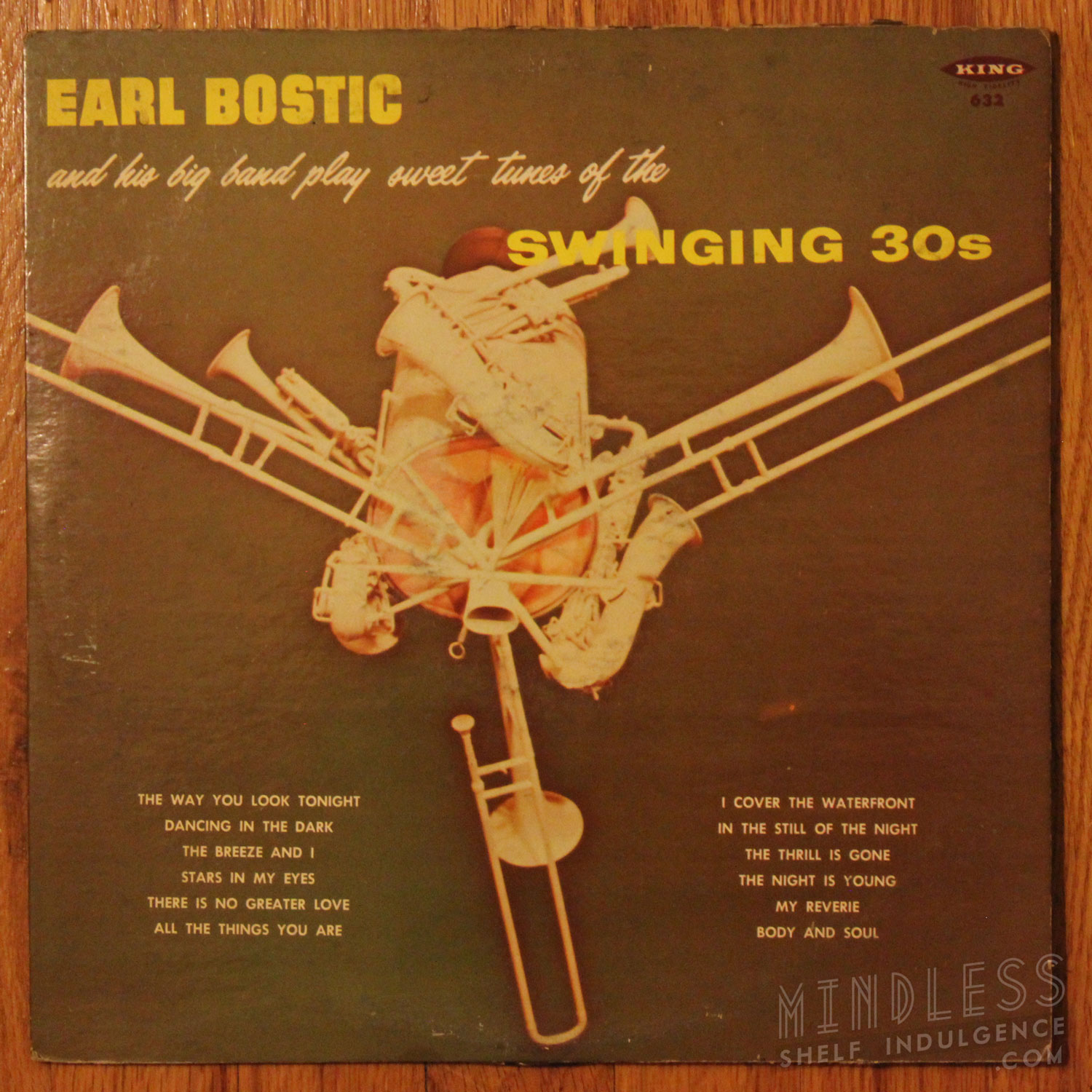
Earl Bostic and his Big Band
Play the Sweet Tunes of the Swinging 30s
[1959]
Earl Bostic was a pioneer of post-war R&B, a noted saxophonist, and one of the rare musicians who died while performing. His career started at the end of the ’30s and stretched into the ’60s. And as a saxophonist, he’s great. The growl he produces marks the important difference between kinda generic, smooth orchestra pop and the step into the kinda undefinable, sexy “space age” of music. Unfortunately, that’s not present in this collection of 1930s hits, and it probably wouldn’t be appropriate here anyhow. Right now, we’re in Lawrence Welk territory, which is a pretty sterile place to be.
An immensely talented musician trapped in an album that doesn’t suit his best qualities.
Keep or toss? I’ll pick up other Earl Bostic albums; they genuinely swing. This isn’t the one, though.
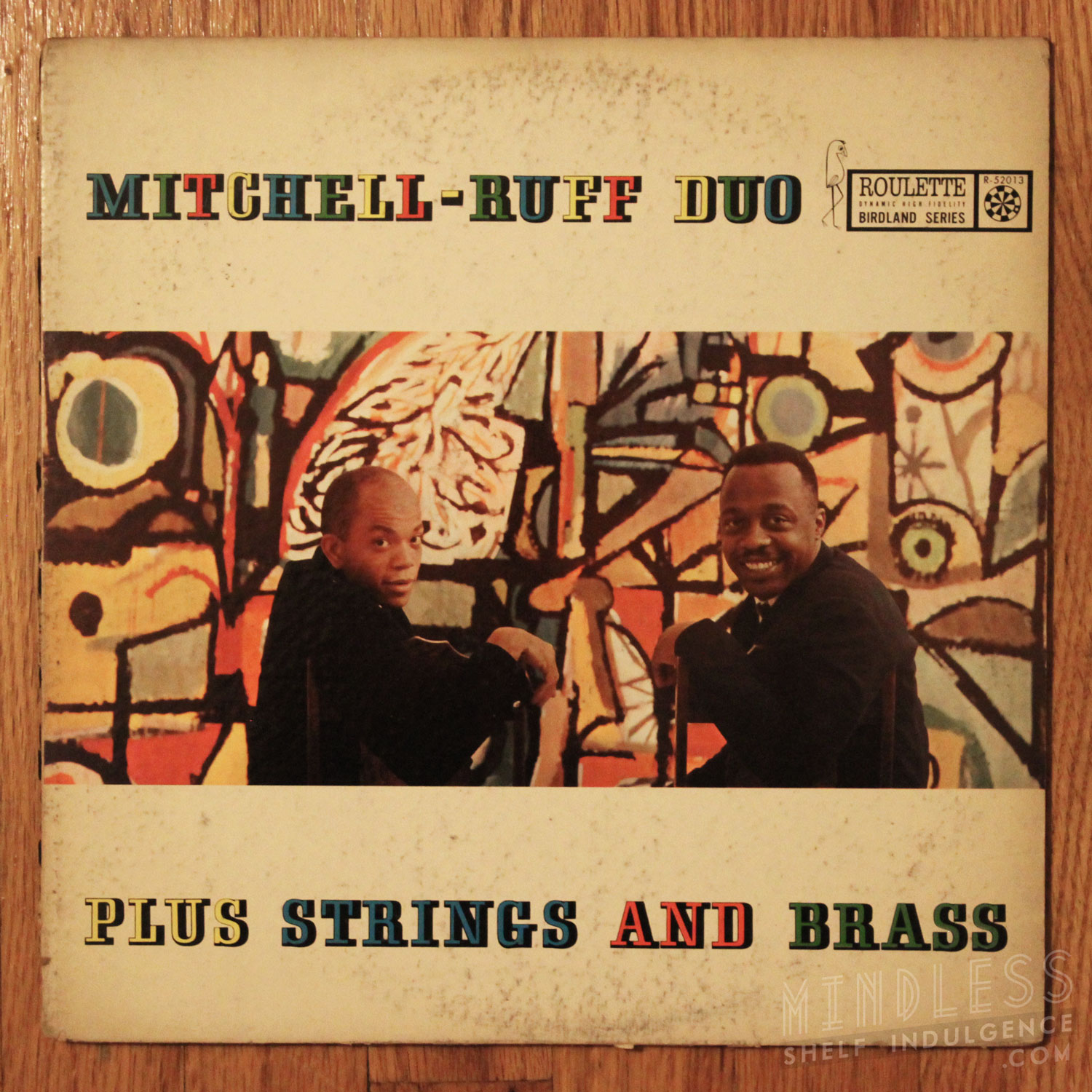
Mitchell-Ruff Duo
Plus Strings and Brass
[1958]
I’m unqualified to really talk too much about the finer points of jazz. A lot of listening to it and one college course isn’t really enough to back up anything I say. What I do know is that a lot of this album also feels like it wanders into really safe Lawrence Welk world, but you can occasionally hear Dwike Mitchell and Willie Ruff shine through the overwhelming amount of lush strings here. It’s like burying your steak in cheese sauce. And not in the good cheesesteak way. When these guys are the center of attention, it’s outstanding. But if there’s anything I’ve learned from this last batch of records, it’s that strings can go very wrong, very easily. All of these overly lush strings just grind the interesting edges off of everything.
I’ve listened to this twice, because listening to it once didn’t feel like enough. There’s just enough personality here to really make it evident that there’s treasure buried. This was undoubtedly an experiment conducted by two very important musicians, and it had its place in the narrative of their story as a duo, but there’s just not enough of them in this.
Keep or toss? This is one of those gateway albums. I think I outgrew it pretty fast, and it was a necessary entryway, but now I’m ready for the hard stuff.
 C. David is a writer and artist living in the Hudson Valley, NY. He loves pinball, Wazmo Nariz, Rem Lezar, MODOK, pogs, Ultra Monsters, 80s horror, and is secretly very enthusiastic about everything else not listed here.
C. David is a writer and artist living in the Hudson Valley, NY. He loves pinball, Wazmo Nariz, Rem Lezar, MODOK, pogs, Ultra Monsters, 80s horror, and is secretly very enthusiastic about everything else not listed here.